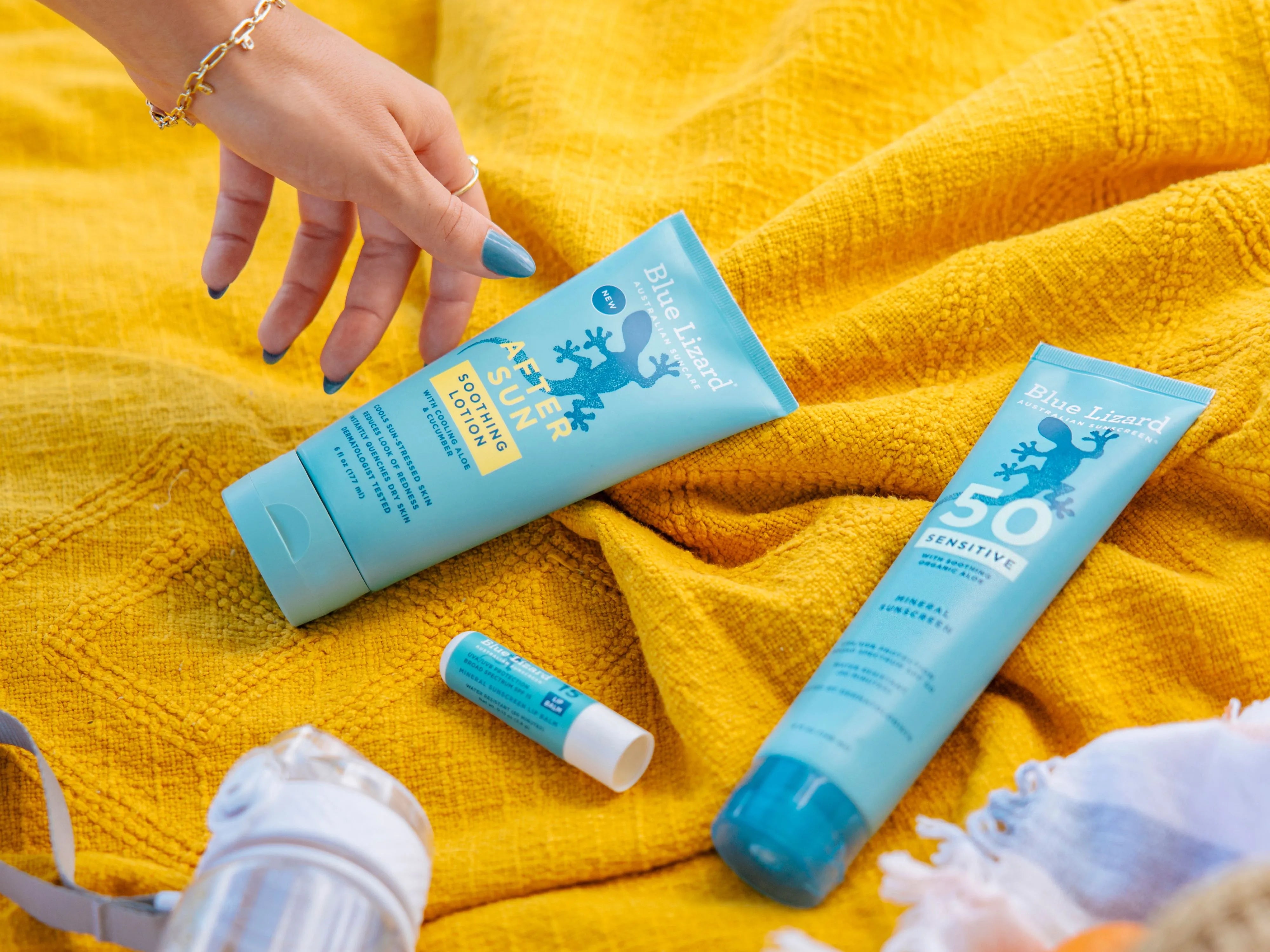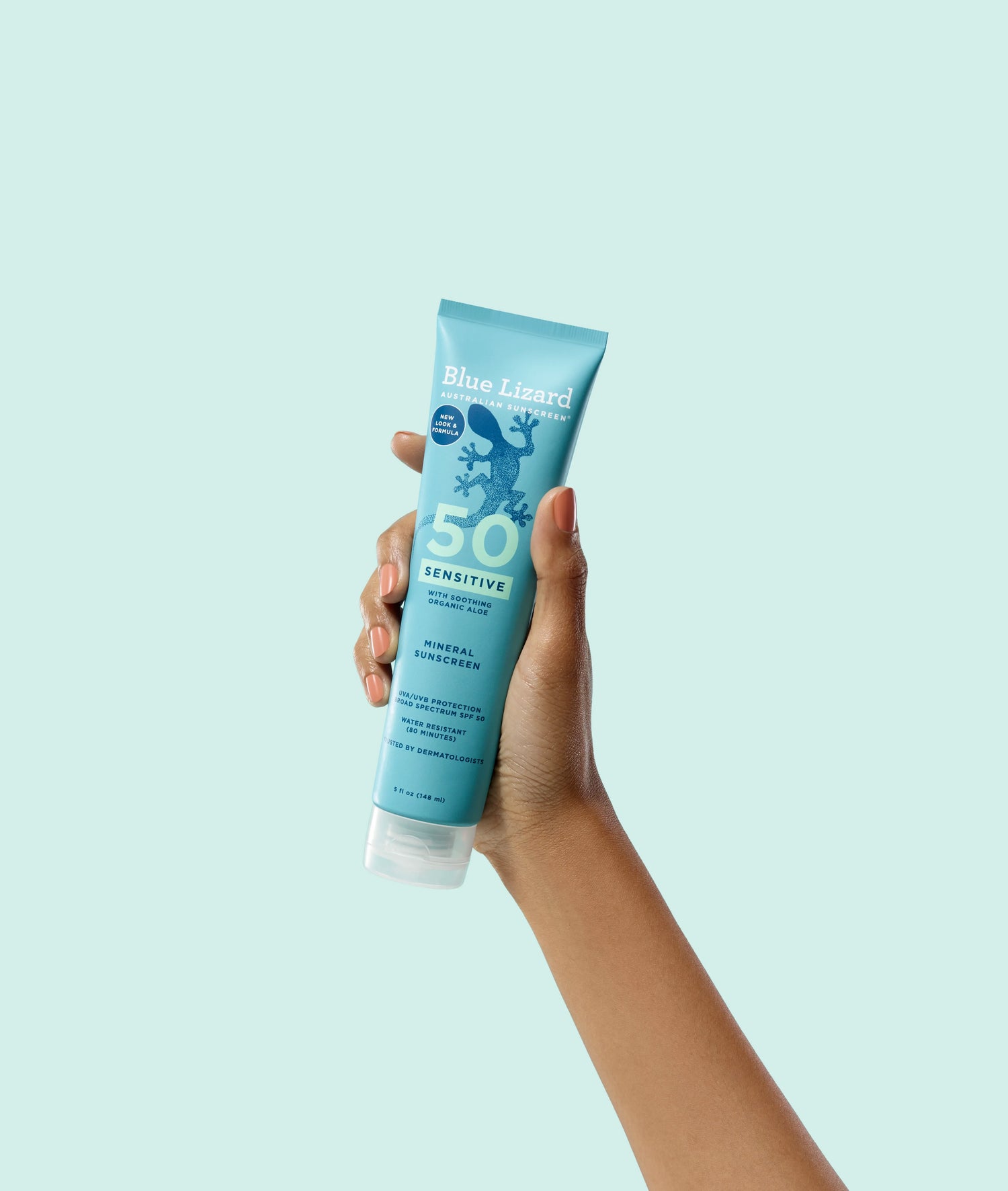Sensitive skin is a common condition but defining it can be tricky. If you have sensitive skin, you may have symptoms that are almost constant or that appear with no obvious trigger, or you may only experience reactions under specific conditions—e.g., you may develop a rash after using a certain product.
In truth, “sensitive skin” is more of an umbrella term than an actual disease. Diseases like dermatitis and rosacea claim sensitive skin as a symptom, and both conditions have their own distinctive traits and treatment routes that sets them apart.
According to the AAD, many Americans have a skin condition like rosacea but are unaware that they have it. The disease is able to worsen if minor symptoms are ignored, but proper treatment and care can keep it under control. As such, it’s important to know what causes your breakouts, how you breakout and what products are best to keep your skin happy and healthy.
Eczema

Dermatitis, often called eczema, is a skin disease that causes dry, red, itchy skin. Certain types mainly affect infants and young children, while others affect people of all ages. Dermatitis is so common that it’s likely that you have had it at one point in your life without even knowing it.
There are two main types of dermatitis: atopic dermatitis and contact dermatitis.
Atopic dermatitis is usually found in infants and children, but adults can develop it as well. The symptoms vary by age, but there are a few common signs. Atopic dermatitis causes the skin around your joints and neck to become red, dry and itchy. In some cases, skin can thicken or develop blisters.
No one knows the exact cause of atopic dermatitis. Studies have shown that a person’s environment could affect their risk—those in developed countries, living in cities with higher levels of pollution, or living in a cold climate are at greater risk. There’s also evidence that genetics play a role.
Contact dermatitis occurs, as the name suggests, when an irritating substance comes into contact with skin, causing it to break out in hives or blisters.
Reactions caused by contact dermatitis fall under one of two main categories: allergic and irritant. Reactions to poison ivy, nickel, latex gloves or new makeup are all categorized as allergic contact dermatitis. Reactions like diaper rash or acid burn are irritant contact dermatitis.
Rosacea

Rosacea is commonly thought of as anxiety-induced flare-ups of red skin, but there is much more to it than that.
Minor cases of rosacea cause flushed cheeks and necks. More severe types of rosacea can cause acne-like breakouts, broken blood vessels, thickening skin and swollen eyes.
Like dermatitis, rosacea can be genetic, but the actual causes are unknown.
How does sunscreen affect sensitive skin?

Unfortunately, this isn’t a “one answer fits all” question. Everyone’s skin is different, and there is no guarantee that your skin will react the same as someone else’s skin in any given situation.
Studies show that many chemical active ingredients used in popular sunscreens are more likely to cause skin irritation or allergic reactions. Oxybenzone is one of the most common and, according to the EWG, the most worrisome in this regard.
Instead, dermatologists recommend using mineral sunscreens made with Zinc Oxide and Titanium Dioxide. These natural sunscreen agents are less likely to cause allergic reactions and, in many cases, camouflage the redness associated with sensitive skin.
Blue Lizard makes two sunscreens formulated specifically for sensitive skin: Sensitive and Baby. These sunscreens contain no active chemical sunscreen ingredients and offer full broad spectrum protection that’s gentle enough for sensitive skin.








